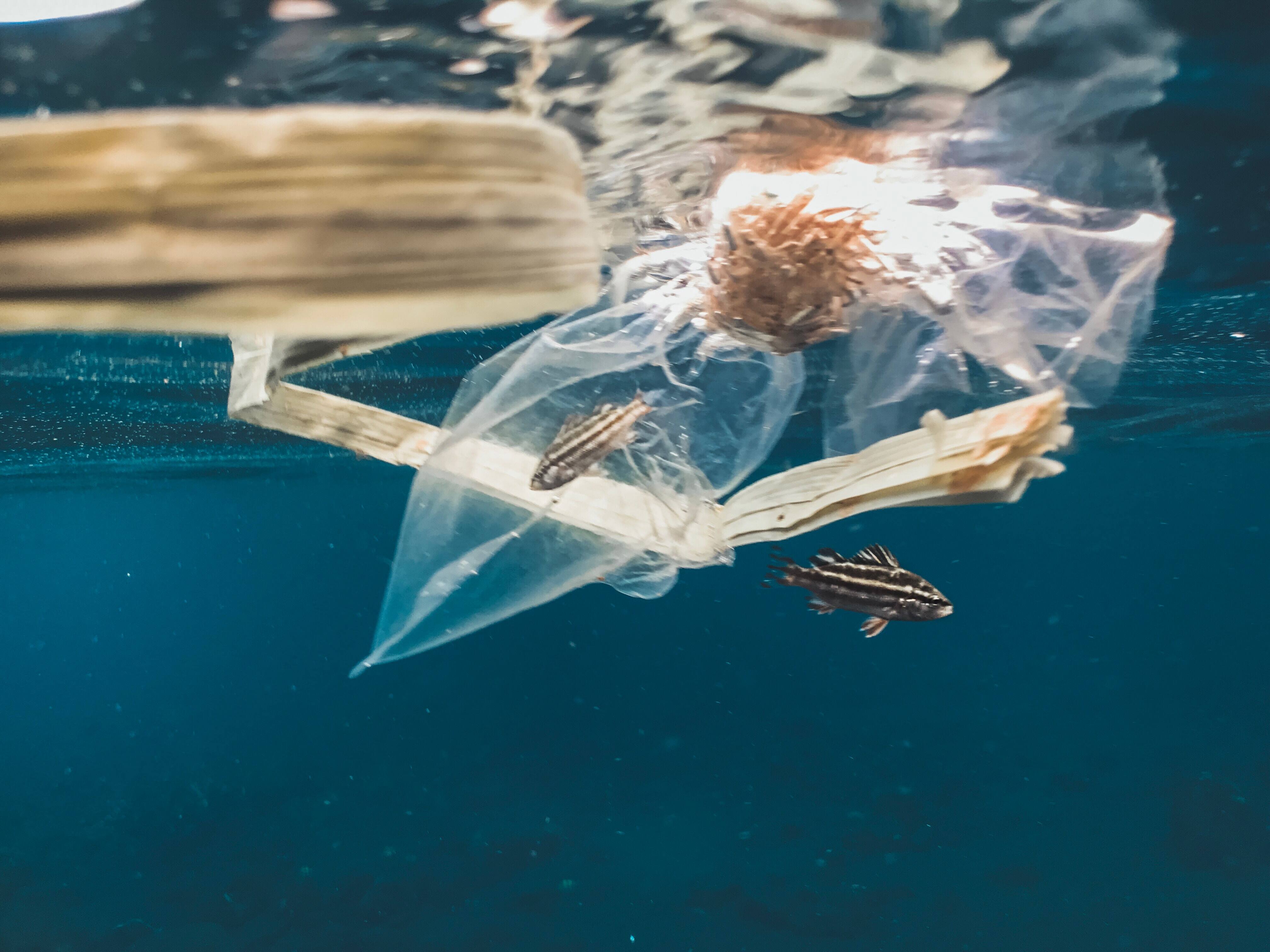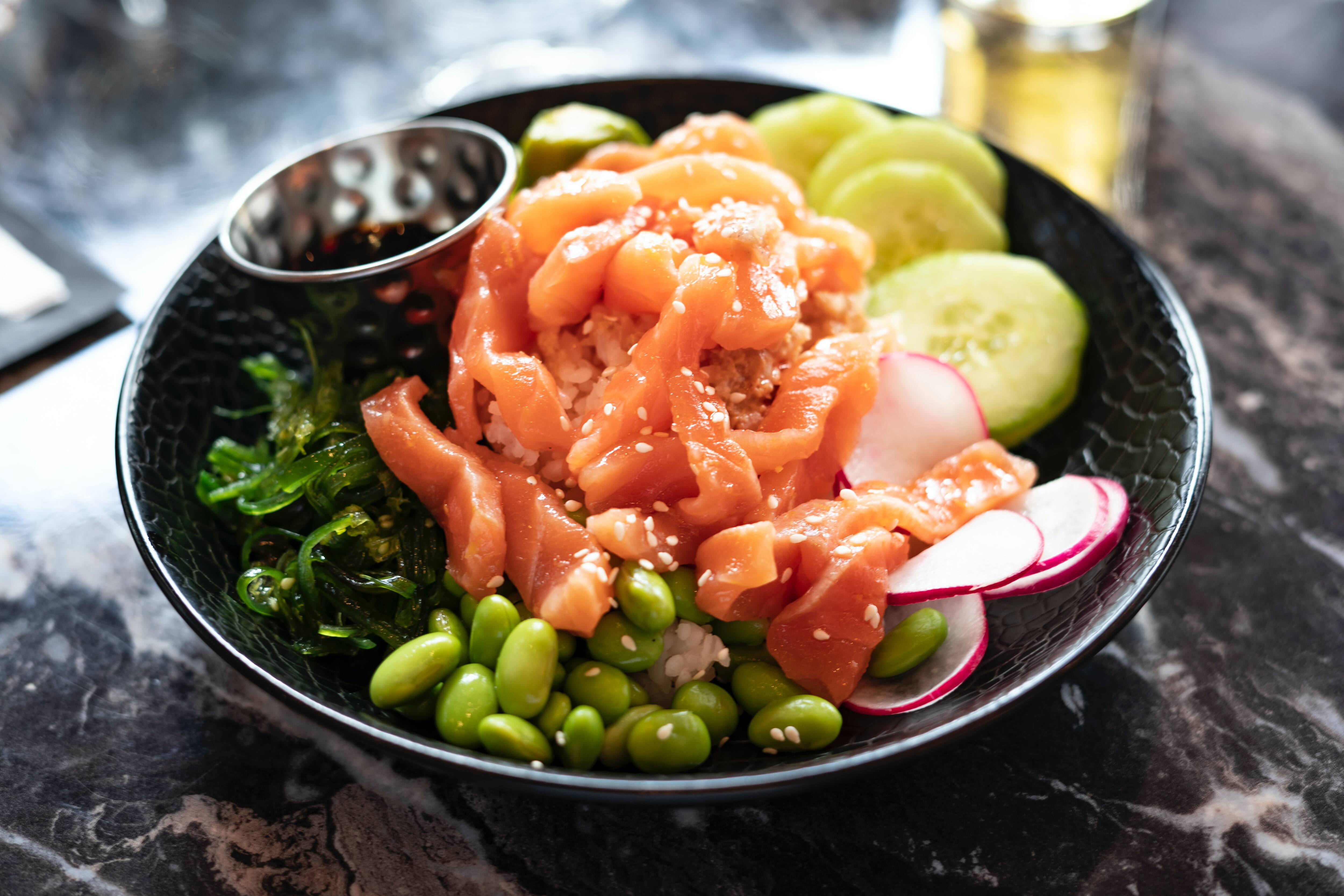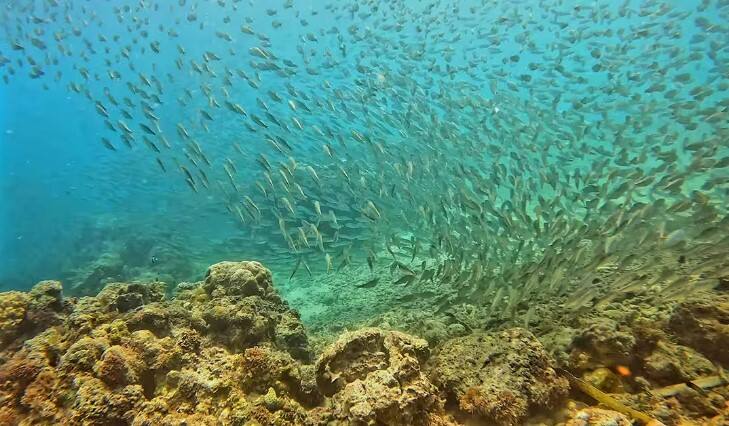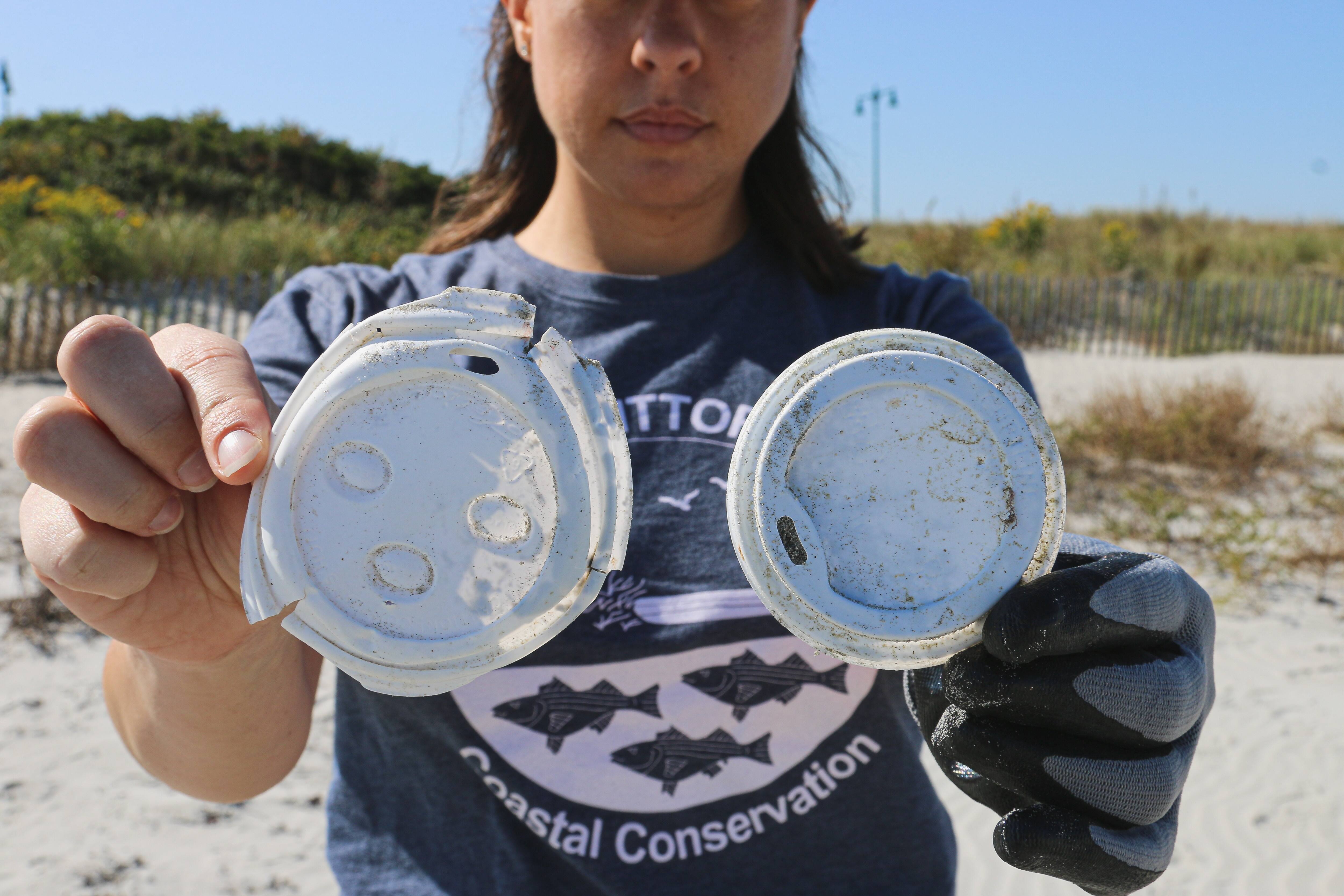Small Ways To Make a Difference for Oceans | ABS-CBN
ADVERTISEMENT

Welcome, Kapamilya! We use cookies to improve your browsing experience. Continuing to use this site means you agree to our use of cookies. Tell me more!
Small Ways To Make a Difference for Oceans
Small Ways To Make a Difference for Oceans
Geolette Esguerra
Published Jun 30, 2023 07:54 PM PHT
|
Updated Jul 06, 2023 08:29 PM PHT
Do you love heading out to the beach during the weekend? Do you like eating seafood, seaweed, or shellfish? Do you often find yourself shopping online and getting items shipped from different parts of the world? Do you enjoy the weather? If you said yes to any of these, you're in for a surprise: All these are related to water. Oceans are very much part of our daily lives, from comfort levels through temperature regulation, to food sources, to tourism and trade, the oceans hold so much significance.
Do you love heading out to the beach during the weekend? Do you like eating seafood, seaweed, or shellfish? Do you often find yourself shopping online and getting items shipped from different parts of the world? Do you enjoy the weather? If you said yes to any of these, you're in for a surprise: All these are related to water. Oceans are very much part of our daily lives, from comfort levels through temperature regulation, to food sources, to tourism and trade, the oceans hold so much significance.
As we go beyond the celebration of Ocean Month, let's take a look at some of the small but impactful ways you can help in changing the conversation about oceans.
As we go beyond the celebration of Ocean Month, let's take a look at some of the small but impactful ways you can help in changing the conversation about oceans.

Reduce Plastic Waste in Consumer Products
The Philippines has a worsening plastic problem that was aggravated during the forced lockdowns that led to the habitual use of on-demand courier services and deliveries, all of which make use of plenty of single-use plastics.
The Philippines has a worsening plastic problem that was aggravated during the forced lockdowns that led to the habitual use of on-demand courier services and deliveries, all of which make use of plenty of single-use plastics.
To counter this, last year, WWF-Philippines advocated for an Extended Producers Responsibility (EPR) scheme to reduce plastic waste from producers, but we can actually take the reverse step and eliminate the use of plastic in our own homes.
To counter this, last year, WWF-Philippines advocated for an Extended Producers Responsibility (EPR) scheme to reduce plastic waste from producers, but we can actually take the reverse step and eliminate the use of plastic in our own homes.
ADVERTISEMENT
We can do this by refusing plastic use such as straws, plastic bags, and disposable cutlery. Instead, keep reusable options at home such as stainless straws, cloth bags, and eco-friendly utensils.
We can do this by refusing plastic use such as straws, plastic bags, and disposable cutlery. Instead, keep reusable options at home such as stainless straws, cloth bags, and eco-friendly utensils.
.jpg)
Ensure proper garbage segregation
It might not seem much, but it's important to ensure your waste is disposed of properly. The process depends on the community or locality. When you don't segregate, you lose the opportunity of segregated trash going to materials recovery facilities, composting sites, or hazardous waste treatment plants. Instead, they end up in landfills and bodies of water.
It might not seem much, but it's important to ensure your waste is disposed of properly. The process depends on the community or locality. When you don't segregate, you lose the opportunity of segregated trash going to materials recovery facilities, composting sites, or hazardous waste treatment plants. Instead, they end up in landfills and bodies of water.
As a rule, remember to segregate according to compostable, recyclable, residual, household hazardous, and household healthcare wastes.
As a rule, remember to segregate according to compostable, recyclable, residual, household hazardous, and household healthcare wastes.
Republic Act (RA) 9003 or the Ecological Solid Waste Management of 2000 mandates there should be segregation at the barangay level, so you should know the difference between the different types of trash bins: Green for compostable and biodegradable waste, recyclable waste such as glass or plastic bottles in blue trash bins, and residual waste like used plastic or paper cups go to black bins. There are also red bins for hazardous waste and yellow bins for healthcare wastes like face masks, gloves, and other COVID-related wastes.
Republic Act (RA) 9003 or the Ecological Solid Waste Management of 2000 mandates there should be segregation at the barangay level, so you should know the difference between the different types of trash bins: Green for compostable and biodegradable waste, recyclable waste such as glass or plastic bottles in blue trash bins, and residual waste like used plastic or paper cups go to black bins. There are also red bins for hazardous waste and yellow bins for healthcare wastes like face masks, gloves, and other COVID-related wastes.
We can do this by refusing to use plastic such as straws, bags, and disposable cutlery. Instead, keep reusable options at home such as stainless straws, cloth bags, and eco-friendly utensils.
We can do this by refusing to use plastic such as straws, bags, and disposable cutlery. Instead, keep reusable options at home such as stainless straws, cloth bags, and eco-friendly utensils.
ADVERTISEMENT

Support sustainable seafood
When you start getting on the sustainable lifestyle track, you’ll find yourself asking producers and suppliers a lot of questions. One of these should be where your seafood is sourced, making sure that the seafood we buy in the market is caught in a way that's least harmful to the marine environment. That way, you’ll be supporting suppliers that use better techniques to catch nearly extinct classes of fish, making sure that these species still be available for the next generation. For example, there's a tendency to over-fish popular varieties like haddock or eel, and thus harming the ecosystem.
When you start getting on the sustainable lifestyle track, you’ll find yourself asking producers and suppliers a lot of questions. One of these should be where your seafood is sourced, making sure that the seafood we buy in the market is caught in a way that's least harmful to the marine environment. That way, you’ll be supporting suppliers that use better techniques to catch nearly extinct classes of fish, making sure that these species still be available for the next generation. For example, there's a tendency to over-fish popular varieties like haddock or eel, and thus harming the ecosystem.
As a regular diner, you can also do this by varying your choices in seafood, so instead of always choosing shrimp, you can try mussels, clams, oysters, crab, or squid. You can also choose to buy local and also to buy some of the bycatch fish or fish that are often just discarded. Finally, there are some restaurants that buy their seafood from sustainable sources, so you might want to support some of them.
As a regular diner, you can also do this by varying your choices in seafood, so instead of always choosing shrimp, you can try mussels, clams, oysters, crab, or squid. You can also choose to buy local and also to buy some of the bycatch fish or fish that are often just discarded. Finally, there are some restaurants that buy their seafood from sustainable sources, so you might want to support some of them.
 Moalboal sardine run Danah Gutierrez
Moalboal sardine run Danah Gutierrez
 Moalboal sardine run Danah Gutierrez
Moalboal sardine run Danah Gutierrez Promote responsible tourism
Certain eco-tourism resorts go beyond lip-service and truly champion eco-friendly practices as well as encourage conservation efforts. There are also those that engage the community even through the construction or operations process, making sure that the resorts are likewise linked to the livelihood and activities of the area.
Certain eco-tourism resorts go beyond lip-service and truly champion eco-friendly practices as well as encourage conservation efforts. There are also those that engage the community even through the construction or operations process, making sure that the resorts are likewise linked to the livelihood and activities of the area.
Some, like this resort in Moalboal in Cebu partner with dive sites that encourage quality diver education, and even in their operations, make use of various sustainable practices like encouraging the use of refilling stations, using metal straws, and involving the community through poster making contests for kids or documentary screenings of 'My Sea, My Home.'
Some, like this resort in Moalboal in Cebu partner with dive sites that encourage quality diver education, and even in their operations, make use of various sustainable practices like encouraging the use of refilling stations, using metal straws, and involving the community through poster making contests for kids or documentary screenings of 'My Sea, My Home.'

Volunteer and participate in cleanups
World Oceans Day (June 8) is often full of community activities in the Philippines and all over the world. This annual celebration was started by the United Nations to stress the importance of ocean conservation. This year's theme is 'Planet Ocean: Tides are Changing,' which wishes to put oceans at the forefront of climate action activities. From the UN article, they explain their motivation for this: 'The ocean covers the majority of the earth, but only a small portion of its waters have been explored. Despite humanity's utter reliance on it, and compared to the breadth and depth of what it gives us, the ocean receives only a fragment of our attention and resources in return.'
World Oceans Day (June 8) is often full of community activities in the Philippines and all over the world. This annual celebration was started by the United Nations to stress the importance of ocean conservation. This year's theme is 'Planet Ocean: Tides are Changing,' which wishes to put oceans at the forefront of climate action activities. From the UN article, they explain their motivation for this: 'The ocean covers the majority of the earth, but only a small portion of its waters have been explored. Despite humanity's utter reliance on it, and compared to the breadth and depth of what it gives us, the ocean receives only a fragment of our attention and resources in return.'
ADVERTISEMENT
Just this June, there was a Manila Bay cleanup as well as a Pasig River cleanup, Coastal Clean-up drives at SM by the Bay where they picked up trash that filled up four 10-wheeler trucks in Pasay City, but there are a lot of other activities that you can participate in like coastal cleanups through the help of DENR and initiatives of individuals and other resorts as well.
Just this June, there was a Manila Bay cleanup as well as a Pasig River cleanup, Coastal Clean-up drives at SM by the Bay where they picked up trash that filled up four 10-wheeler trucks in Pasay City, but there are a lot of other activities that you can participate in like coastal cleanups through the help of DENR and initiatives of individuals and other resorts as well.
Conserve water
Finally, you can start small, and start at home. You can do this with simple water-saving habits like turning off the tap or shower when not in use, recycling water, or washing clothes in bigger batches. You can also opt for water-saving devices and fixtures like smart toilets, low-flow toilets and showerheads, recirculating hot water systems, or the use of pressure-reducing valves.
Finally, you can start small, and start at home. You can do this with simple water-saving habits like turning off the tap or shower when not in use, recycling water, or washing clothes in bigger batches. You can also opt for water-saving devices and fixtures like smart toilets, low-flow toilets and showerheads, recirculating hot water systems, or the use of pressure-reducing valves.
First Philippine Holdings (FPH) is a pioneering holding company with principal interests in clean and renewable energy, real estate, manufacturing, construction, healthcare, and education. FPH is a member of the Lopez Group of Companies.
ADVERTISEMENT
ADVERTISEMENT


